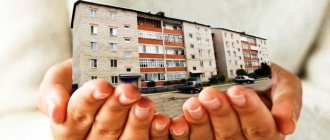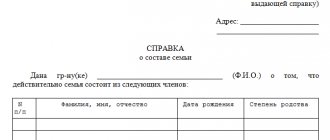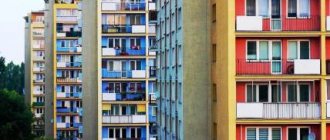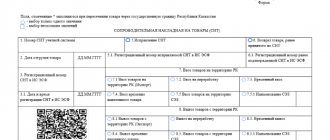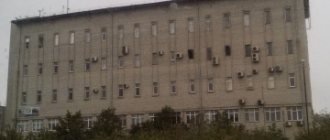Article 143 of the Housing Code of the Russian Federation. Membership in a homeowners association
- Membership in a homeowners' association arises from the owner of premises in an apartment building on the basis of an application to join the homeowners' association.
- If a homeowners' association has been created in an apartment building, persons purchasing premises in this building have the right to become members of the association after they acquire ownership of the premises.
- Membership in a homeowners' association is terminated from the moment of filing an application to leave the partnership or from the moment of termination of the ownership right of a member of the partnership to premises in an apartment building.
- The register of members of a homeowners' association must contain information allowing identification of members of the association and communication with them, as well as information on the size of their shares in the right of common ownership of common property in an apartment building.
- A member of a homeowners' association is obliged to provide the board of the association with reliable information provided for in Part 4 of this article, and promptly inform the board of the association about their changes.
- Membership in a homeowners' association created by the owners of premises in two or more apartment buildings is terminated for all who were members of the association of premises owners in one of the apartment buildings from the moment of filing an application to withdraw from the membership of the association of the owner of the premises in the apartment building in whose partnership after the termination of this membership, members of the partnership who are owners of premises in the same building will have less than fifty percent of the votes of the total number of votes of the owners of premises in this building. After termination of membership in the partnership, the owners of premises in a given building are required to choose and implement one of the methods of managing an apartment building specified in Article 161 of this Code.
Article 145 of the RF Housing Code. General meeting of homeowners association members
- The general meeting of members of the homeowners association is the highest governing body of the association and is convened in the manner established by the charter of the association.
- The competence of the general meeting of members of the homeowners' association includes: 1) making changes to the charter of the partnership or approving the charter of the partnership in a new edition; 2) making decisions on the reorganization and liquidation of the partnership, appointing a liquidation commission, approving interim and final liquidation balance sheets; 3) election of members of the board of the partnership, members of the audit commission (auditor) of the partnership and, in cases provided for by the charter of the partnership, also the chairman of the board of the partnership from among the members of the board of the partnership, early termination of their powers; 4) establishing the amount of obligatory payments and contributions of members of the partnership; 5) approval of the procedure for the formation of the partnership’s reserve fund, other special funds of the partnership (including funds for current and major repairs of common property in an apartment building) and their use, as well as approval of reports on the use of such funds; 6) making a decision on obtaining borrowed funds, including bank loans; 7) determining the directions for using income from the economic activities of the partnership; approval of an annual plan for the maintenance and repair of common property in an apartment building, a report on the implementation of such a plan; 8.1) approval of estimates of income and expenses of the partnership for the year, reports on the implementation of such estimates, audit reports (in the case of audits); 8.2) approval of the annual report on the activities of the management board of the partnership; 8.3) approval of the conclusion of the audit commission (auditor) of the partnership based on the results of the audit of the annual accounting (financial) statements of the partnership; 9) consideration of complaints against the actions of the board of the partnership, the chairman of the board of the partnership and the audit commission (auditor) of the partnership; 10) adoption and amendment, upon the proposal of the chairman of the board of the partnership, of the internal regulations of the partnership in relation to employees whose responsibilities include the maintenance and repair of common property in an apartment building, provisions on the payment of their labor, approval of other internal documents of the partnership provided for by this Code, the charter of the partnership and decisions of the general meeting of members of the partnership; 11) determining the amount of remuneration for members of the board of the partnership, including the chairman of the board of the partnership; 12) has become invalid. 13) other issues provided for by this Code or other federal laws.
- The charter of the homeowners association may also include the resolution of other issues in addition to those specified in Part 2 of this article within the competence of the general meeting of members of the association.
- The general meeting of members of the homeowners' association has the right to resolve issues that fall within the competence of the association's board.
HOUSING CODE OF THE RF 2021
Chapter 14. Legal status of members of the homeowners association
Article 143. Membership in a homeowners’ association
1. Membership in a homeowners’ association arises from the owner of a premises in an apartment building on the basis of an application to join the homeowners’ association. 2. If a homeowners’ association has been created in an apartment building, persons purchasing premises in this building have the right to become members of the association after they acquire ownership of the premises. 3. Membership in a homeowners’ association is terminated from the moment of filing an application to leave the partnership or from the moment of termination of the ownership right of a member of the partnership to premises in an apartment building. 4. The register of members of a homeowners’ association must contain information allowing identification of members of the association and communication with them, as well as information on the size of their shares in the right of common ownership of common property in an apartment building. (Part 4 introduced by Federal Law No. 123-FZ dated 04.06.2011) 5. A member of a homeowners association is obliged to provide the board of the association with reliable information provided for in Part 4 of this article, and promptly inform the board of the association about their changes. (Part 5 introduced by Federal Law No. 123-FZ dated 04.06.2011) 6. Membership in a homeowners’ association created by the owners of premises in two or more apartment buildings is terminated for all who were members of the association of owners of premises in one of the apartment buildings from the moment of filing the application on the withdrawal from the membership of the partnership of the owner of premises in an apartment building, in the partnership of which, after the termination of this membership, the members of the partnership who are the owners of premises in the same building will have less than fifty percent of the votes of the total number of votes of the owners of premises in this building. After termination of membership in the partnership, the owners of premises in a given building are required to choose and implement one of the methods of managing an apartment building specified in Article 161 of this Code. (Part 6 introduced by Federal Law dated June 4, 2011 N 123-FZ)
Article 143.1. Rights of members of the homeowners association and non-members of the homeowners association in an apartment building
(introduced by Federal Law dated June 4, 2011 N 123-FZ)
1. Members of a homeowners’ association and non-members of the partnership, owners of premises in an apartment building, have the right to receive from the management bodies of the partnership information about the activities of the partnership in the manner and to the extent established by this Code and the charter of the partnership, and to appeal in court the decisions of the management bodies of the partnership. 2. Members of a homeowners’ association and non-members of the association, owners of premises in an apartment building, have the right to make demands on the association regarding the quality of services provided and (or) work performed. 3. Members of a homeowners’ association and non-members of the association, owners of premises in an apartment building, have the right to familiarize themselves with the following documents:
1) the charter of the partnership, amendments made to the charter, certificate of state registration of the partnership; 2) register of members of the partnership; 3) accounting (financial) statements of the partnership, estimates of income and expenses of the partnership for the year, reports on the implementation of such estimates, audit reports (in the case of audits); 4) conclusions of the audit commission (auditor) of the partnership; 5) documents confirming the partnership’s rights to property reflected on its balance sheet; 6) minutes of general meetings of members of the partnership, meetings of the board of the partnership and the audit commission of the partnership; 7) documents confirming the voting results at the general meeting of members of the partnership, including voting ballots, voting powers or copies of such powers, as well as written decisions of the owners of premises in an apartment building on issues put to vote during the general meeting owners of premises in an apartment building in the form of absentee voting; technical documentation for an apartment building and other documents related to the management of this building; 9) other internal documents of the partnership provided for by this Code, the charter of the partnership and decisions of the general meeting of members of the partnership.
Article 144. Management bodies of the homeowners’ association
The governing bodies of the homeowners' association are the general meeting of the members of the association and the board of the association.
Article 145. General meeting of members of the homeowners association
1. The general meeting of members of a homeowners’ association is the highest governing body of the association and is convened in the manner established by the charter of the association. 2. The competence of the general meeting of members of the homeowners association includes:
1) introducing amendments to the charter of the partnership or approving the charter of the partnership in a new edition; (Clause 1 as amended by Federal Law No. 123-FZ dated June 4, 2011) 2) making decisions on the reorganization and liquidation of the partnership, appointing a liquidation commission, approving interim and final liquidation balance sheets; (as amended by Federal Law No. 123-FZ dated 04.06.2011) 3) election of members of the board of the partnership, members of the audit commission (auditor) of the partnership and, in cases provided for by the charter of the partnership, also the chairman of the board of the partnership from among the members of the board of the partnership, their early termination powers; (clause 3 as amended by Federal Law No. 123-FZ of June 4, 2011) 4) establishing the amount of mandatory payments and contributions of members of the partnership; 5) approval of the procedure for the formation of the partnership’s reserve fund, other special funds of the partnership (including funds for current and major repairs of common property in an apartment building) and their use, as well as approval of reports on the use of such funds; (Clause 5 as amended by Federal Law No. 123-FZ dated June 4, 2011) 6) making a decision on obtaining borrowed funds, including bank loans; 7) determining the directions for using income from the economic activities of the partnership; approval of an annual plan for the maintenance and repair of common property in an apartment building, a report on the implementation of such a plan; (clause 8 as amended by Federal Law No. 123-FZ dated 04.06.2011) 8.1) approval of the partnership’s income and expenses estimates for the year, reports on the implementation of such estimates, audit reports (in the case of audits); (Clause 8.1 introduced by Federal Law dated 06/04/2011 N 123-FZ) 8.2) approval of the annual report on the activities of the board of the partnership; (clause 8.2 introduced by Federal Law No. 123-FZ dated June 4, 2011) 8.3) approval of the conclusion of the audit commission (auditor) of the partnership based on the results of an audit of the annual accounting (financial) statements of the partnership; (clause 8.3 introduced by Federal Law No. 123-FZ dated June 4, 2011) 9) consideration of complaints against the actions of the board of the partnership, the chairman of the board of the partnership and the audit commission (auditor) of the partnership; 10) adoption and amendment, upon the proposal of the chairman of the board of the partnership, of the internal regulations of the partnership in relation to employees whose responsibilities include the maintenance and repair of common property in an apartment building, provisions on the payment of their labor, approval of other internal documents of the partnership provided for by this Code, the charter of the partnership and decisions of the general meeting of members of the partnership; (as amended by Federal Law No. 123-FZ dated June 4, 2011) 11) determining the amount of remuneration for members of the board of the partnership, including the chairman of the board of the partnership; (as amended by Federal Law No. 123-FZ dated 04.06.2011) 12) lost force. — Federal Law of September 27, 2009 N 228-FZ; 13) other issues provided for by this Code or other federal laws.
3. The charter of the homeowners’ association may also include the resolution of other issues in addition to those specified in Part 2 of this article within the competence of the general meeting of members of the association. 4. The general meeting of members of the homeowners’ association has the right to resolve issues that fall within the competence of the association’s board.
Article 146. Procedure for organizing and holding a general meeting of members of the homeowners association
1. Notification of a general meeting of members of a homeowners’ association is sent in writing by the person on whose initiative the general meeting is convened, and is given to each member of the association against signature or by mail (registered mail) or in another way provided for by the decision of the general meeting of members of the association or charter of the partnership. The notice is sent no later than ten days before the date of the general meeting. (as amended by Federal Law dated June 4, 2011 N 123-FZ) 1.1. The provisions of Articles 45 - 48 of this Code apply to the procedure for holding a general meeting of members of the homeowners association, unless otherwise established by this section. (Part 1.1 introduced by Federal Law No. 123-FZ dated 04.06.2011) 2. The notice of a general meeting of members of a homeowners association shall indicate information about the person on whose initiative the general meeting is convened, the place and time of the meeting, and the agenda of the general meeting. The general meeting of members of the homeowners association does not have the right to bring up for discussion issues that were not included in the agenda. 3. The powers of the general meeting of members of the homeowners’ association are established in accordance with Article 45 of this Code and the charter of the partnership. The general meeting of members of a homeowners' association is valid if it is attended by members of the association or their representatives who have more than fifty percent of the votes of the total number of votes of the members of the association. (as amended by Federal Law No. 123-FZ dated 04.06.2011) 4. Decisions of the general meeting of members of the homeowners association on issues referred by this Code to the competence of the general meeting in accordance with paragraphs 2, 6 and 7 of part 2 of Article 145 of this Code, are adopted by at least two-thirds of the votes of the total number of votes of the members of the partnership. Decisions on other issues are made by a majority vote of the total number of votes of the members of the partnership or their representatives present at the general meeting. (as amended by Federal Law No. 228-FZ of September 27, 2009) 5. The general meeting of members of the homeowners association is chaired by the chairman of the board of the association or his deputy. In case of their absence, the general meeting is chaired by one of the members of the board of the partnership. 6. The decision of the general meeting of members of the homeowners’ association may be adopted by absentee voting in the manner established by Articles 47 and 48 of this Code. (Part 6 as amended by Federal Law dated 04.06.2011 N 123-FZ) 7. In the case provided for in Part 2.1 of Article 135 of this Code, holding a general meeting of members of a homeowners association using the system is carried out in compliance with the requirements established by Article 47.1 of this Code . (Part 7 introduced by Federal Law dated July 21, 2014 N 263-FZ; as amended by Federal Law dated June 29, 2015 N 176-FZ)
Article 147. Board of the homeowners association
1. Management of the activities of the homeowners’ association is carried out by the board of the association. The board of a homeowners' association has the right to make decisions on all issues of the partnership's activities, with the exception of issues falling within the exclusive competence of the general meeting of owners of premises in an apartment building and the competence of the general meeting of members of the homeowners' association. 2. The board of a homeowners association is elected from among the members of the association by the general meeting of members of the association for the period established by the charter of the association, but not more than for two years. 3. The board of a homeowners’ association elects from among its members the chairman of the partnership, if the election of the chairman of the partnership is not within the competence of the general meeting of members of the partnership by the charter of the partnership. (as amended by Federal Law dated June 4, 2011 N 123-FZ) 3.1. A member of the board of a homeowners' association cannot be a person with whom the association has entered into an agreement for the management of an apartment building, or a person holding a position in the management bodies of the organization with which the association has entered into the said agreement, as well as a member of the audit commission (auditor) of the association. A member of the board of a homeowners' association cannot combine his activities on the board of the partnership with work in the partnership under an employment contract, as well as entrust, trust, or otherwise entrust to another person the performance of his duties as a member of the board of the partnership. (Part 3.1 introduced by Federal Law dated June 4, 2011 N 123-FZ) 4. The board of a homeowners association is the executive body of the partnership, accountable to the general meeting of members of the partnership. 5. A meeting of the board of a homeowners association is convened by the chairman within the time limits established by the charter of the association. 6. The board of a homeowners’ association is competent to make decisions if at least fifty percent of the total number of members of the board of the association are present at a meeting of the board of the association. Decisions of the board of the partnership are made by a simple majority of votes from the total number of votes of the board members present at the meeting, unless a larger number of votes for making such decisions is provided for by the charter of the partnership. Decisions made by the board of the partnership are documented in the minutes of the meeting of the board of the partnership and signed by the chairman of the board of the partnership, the secretary of the meeting of the board of the partnership. (Part 6 as amended by Federal Law dated 04.06.2011 N 123-FZ)
Article 148. Responsibilities of the board of a homeowners association
The responsibilities of the homeowners association board include:
1) compliance by the partnership with the legislation and the requirements of the charter of the partnership; 2) control over the timely payment by members of the partnership of established mandatory payments and contributions; 3) drawing up estimates of income and expenses for the corresponding year of the partnership and reports on financial activities, submitting them to the general meeting of members of the partnership for approval; 4) management of an apartment building or concluding contracts for its management; 5) hiring workers to service an apartment building and dismissing them; 6) concluding contracts for the maintenance, operation and repair of common property in an apartment building; 7) maintaining a register of members of the partnership, office work, accounting and financial reporting; (as amended by Federal Law No. 123-FZ dated June 4, 2011) convening and holding a general meeting of members of the partnership; 9) fulfillment of other duties arising from the charter of the homeowners association.
Article 149. Chairman of the board of a homeowners association
1. The chairman of the board of a homeowners association is elected for the period established by the charter of the association. The chairman of the board of the partnership ensures the implementation of decisions of the board, has the right to give instructions and orders to all officials of the partnership, the execution of which is mandatory for these persons. 2. The chairman of the board of a homeowners’ association acts without a power of attorney on behalf of the partnership, signs payment documents and makes transactions that, in accordance with the law, the charter of the partnership, do not require mandatory approval by the board of the partnership or the general meeting of members of the partnership, develops and submits for approval to the general meeting of members of the partnership the internal regulations of the partnership in relation to employees whose responsibilities include the maintenance and repair of common property in an apartment building, regulations on the payment of their labor, approval of other internal documents of the partnership provided for by this Code, the charter of the partnership and decisions of the general meeting of members of the partnership. (as amended by Federal Law dated June 4, 2011 N 123-FZ)
Article 150. Audit commission (auditor) of a homeowners’ association
1. The audit commission (auditor) of a homeowners’ association is elected by the general meeting of members of the association for no more than two years. The audit commission of a homeowners' association cannot include members of the association's board. 2. The audit commission of the homeowners association elects the chairman of the audit commission from among its members. 3. Audit commission (auditor) of the homeowners association:
1) conducts audits of the financial activities of the partnership at least once a year; 1.1) presents to the general meeting of members of the partnership a conclusion based on the results of the audit of the annual accounting (financial) statements of the partnership; (Clause 1.1 introduced by Federal Law dated 04.06.2011 N 123-FZ) 2) presents to the general meeting of members of the partnership a conclusion on the estimate of income and expenses for the corresponding year of the partnership and a report on financial activities and the amount of mandatory payments and contributions; 3) reports to the general meeting of members of the partnership on its activities.
Article 151. Funds and property of the homeowners’ association
1. A homeowners’ association may own movable property, as well as real estate located inside or outside an apartment building. 2. The funds of the homeowners association consist of:
1) mandatory payments, entrance and other contributions of members of the partnership; 2) income from the economic activities of the partnership, aimed at achieving the goals, objectives and fulfillment of the obligations of the partnership; 3) subsidies to ensure the operation of common property in an apartment building, carrying out current and major repairs, providing certain types of utilities and other subsidies; 4) other income.
3. Based on the decision of the general meeting of members of the homeowners’ association, special funds may be formed in the association, spent on the purposes provided for in the charter. The procedure for the formation of special funds is determined by the general meeting of members of the partnership. 4. The board of the homeowners association has the right to dispose of the funds of the association located in the bank account in accordance with the financial plan of the association.
Article 152. Economic activity of a homeowners’ association
1. To achieve the goals provided for by the charter, the homeowners association has the right to engage in economic activities. 2. A homeowners’ association may engage in the following types of economic activities:
1) maintenance, operation and repair of real estate in an apartment building; 2) construction of additional premises and common property in an apartment building; 3) renting out, leasing part of the common property in an apartment building.
3. Based on the decision of the general meeting of members of the homeowners’ association, income from the economic activities of the association is used to pay general expenses or is sent to special funds spent for the purposes provided for by the charter of the association. Additional income may be directed to other purposes of the activities of the homeowners association, provided for by this chapter and the charter of the association.
Article 147 of the RF Housing Code. Homeowners Association Board
- The management of the activities of the homeowners association is carried out by the board of the association. The board of a homeowners' association has the right to make decisions on all issues of the partnership's activities, with the exception of issues falling within the exclusive competence of the general meeting of owners of premises in an apartment building and the competence of the general meeting of members of the homeowners' association.
- The board of a homeowners' association is elected from among the members of the association by the general meeting of members of the association for the period established by the charter of the association, but not more than for two years.
- The board of a homeowners' association elects from among its members the chairman of the partnership, if the election of the chairman of the partnership is not within the competence of the general meeting of members of the partnership by the charter of the partnership. 3.1. A member of the board of a homeowners' association cannot be a person with whom the association has entered into an agreement for the management of an apartment building, or a person holding a position in the management bodies of the organization with which the association has entered into the said agreement, as well as a member of the audit commission (auditor) of the association. A member of the board of a homeowners' association cannot combine his activities on the board of the partnership with work in the partnership under an employment contract, as well as entrust, trust, or otherwise entrust to another person the performance of his duties as a member of the board of the partnership.
- The board of a homeowners association is the executive body of the association, reporting to the general meeting of members of the association.
- A meeting of the board of a homeowners association is convened by the chairman within the time limits established by the charter of the association.
- The board of a homeowners association is competent to make decisions if at least fifty percent of the total number of members of the board of the association are present at a meeting of the board of the association. Decisions of the board of the partnership are made by a simple majority of votes from the total number of votes of the board members present at the meeting, unless a larger number of votes for making such decisions is provided for by the charter of the partnership. Decisions made by the board of the partnership are documented in the minutes of the meeting of the board of the partnership and signed by the chairman of the board of the partnership, the secretary of the meeting of the board of the partnership.
Judicial practice under Art. 147 housing complex RF
Housing Code of the Russian Federation
Article 147. Board of the Homeowners Association 1. Management of the activities of the Homeowners Association is carried out by the board of the partnership.
The board of a homeowners' association has the right to make decisions on all issues of the partnership's activities, with the exception of issues falling within the exclusive competence of the general meeting of owners of premises in an apartment building and the competence of the general meeting of members of the homeowners' association. 2. The board of a homeowners association is elected from among the members of the association by the general meeting of members of the association for the period established by the charter of the association, but not more than for two years.
3. The board of a homeowners’ association elects from among its members the chairman of the partnership, if the election of the chairman of the partnership is not within the competence of the general meeting of members of the partnership by the charter of the partnership.
(as amended by Federal Law dated June 4, 2011 N 123-FZ)
3.1. A member of the board of a homeowners' association cannot be a person with whom the association has entered into an agreement for the management of an apartment building, or a person holding a position in the management bodies of the organization with which the association has entered into the said agreement, as well as a member of the audit commission (auditor) of the association. A member of the board of a homeowners' association cannot combine his activities on the board of the partnership with work in the partnership under an employment contract, as well as entrust, trust, or otherwise entrust to another person the performance of his duties as a member of the board of the partnership.
(Part 3.1 introduced by Federal Law dated 06/04/2011 N 123-FZ)
4. The board of a homeowners association is the executive body of the partnership, accountable to the general meeting of members of the partnership.
5. A meeting of the board of a homeowners association is convened by the chairman within the time limits established by the charter of the association.
6. The board of a homeowners’ association is competent to make decisions if at least fifty percent of the total number of members of the board of the association are present at a meeting of the board of the association. Decisions of the board of the partnership are made by a simple majority of votes from the total number of votes of the board members present at the meeting, unless a larger number of votes for making such decisions is provided for by the charter of the partnership. Decisions made by the board of the partnership are documented in the minutes of the meeting of the board of the partnership and signed by the chairman of the board of the partnership, the secretary of the meeting of the board of the partnership.
(Part 6 as amended by Federal Law dated 04.06.2011 N 123-FZ)
Article 148 of the RF Housing Code. Responsibilities of the Homeowners Association Board
The responsibilities of the board of a homeowners association include: 1) compliance by the association with the law and the requirements of the charter of the association; 2) control over the timely payment by members of the partnership of established mandatory payments and contributions; 3) drawing up estimates of income and expenses for the corresponding year of the partnership and reports on financial activities, submitting them to the general meeting of members of the partnership for approval; 4) management of an apartment building or concluding contracts for its management; 5) hiring workers to service an apartment building and dismissing them; 6) concluding contracts for the maintenance, operation and repair of common property in an apartment building; 7) maintaining a register of members of the partnership, office work, accounting and financial statements; convening and holding a general meeting of members of the partnership; 9) fulfillment of other duties arising from the charter of the homeowners association.
Commentary on Article 147 of the RF Housing Code
1. The board of a homeowners association is a collegial executive body of the partnership, accountable to the general meeting of members of the partnership, which manages the current activities of the partnership. Since this activity is very multifaceted, the board has the right to make decisions on all issues, with the exception of those that fall within the exclusive competence of the general meeting of owners of premises in an apartment building (see Part 2 of Article 44) and the competence of the general meeting of members of the partnership ( see Part 2 of Article 145 of the Code).
A number of specific issues, the solution of which is the responsibility of the board of the partnership, are defined in Art. 148 of the Code (see the specified article and commentary to it).
It should also be taken into account that the own competence established in Art. 149 of the Code, the chairman of the board of the partnership also has. The Management Board as a collegial body does not have the right to exercise the powers of the sole executive body.
Thus, the competence of the board of a homeowners’ association is determined according to the residual principle: this body has the right to resolve any issues of the activities of such a partnership that are not within the competence of the general meeting of owners of premises in an apartment building, the general meeting of members of the association and the chairman of the board of the association. Taking into account this circumstance, the powers of the board should be determined in the charter of the partnership.
2. The decision of the general meeting of members of the homeowners’ association on the election of the board of directors is adopted by a simple majority of votes from the total number of votes of the members of the association or their representatives present at the general meeting.
For example, owners of premises in an apartment building who are not members of the homeowners’ association cannot be elected to the board. In addition, persons who are members of the audit commission of this partnership cannot be members of the board (see Part 1 of Article 150 of the Code).
3. In part 3 of Art. 147 of the Code we are not talking about the chairman of the partnership, but about the chairman of the board of the partnership, whose status as the sole executive body is defined in Art. 149 of the Code. It is advisable for the legislator to correct the terminological inaccuracy in the norm under consideration.
Due to the fact that the chairman of the board is elected from the board, reputable lawyers rightly point out that these provisions of the Code contradict the general procedure for the formation of executive bodies. One executive body does not have the right to create another executive body, especially since both control the activities of each other. The chairman of the board is the sole executive body, and not a rotating chairman, vested with purely organizational functions related to convening and conducting board meetings. As an executive body, the chairman is responsible to the general meeting for his activities, which necessitates his election by the meeting and not by the board (the formation of executive bodies falls within the competence of the highest management body of the partnership - see Part 2 of Article 145 of the Code) <1>. Therefore, it appears that Art. Art. 145 and 147 of the Code, it is necessary to make changes that refer the election of the chairman of the board of a homeowners’ association to the competence of the general meeting of members of the partnership. ——————————— <1> See: Commentary on the Housing Code of the Russian Federation / Ed. M.Yu. Tikhomirov. M.: Publishing house. Tikhomirova M.Yu., 2005 - 2007. P. 333.
4. The charter of a homeowners’ association can establish a procedure according to which, when considering at the annual general meeting of members of the partnership a report on the implementation of the annual plan on the financial activities of the partnership (see clause 8, part 2, article 145 of the Code), the general meeting also considered the board's report on its other activities.
When drawing up financial plans and relevant reports, it is advisable to take into account the Recommendations for organizing financial and accounting records for homeowners' associations, approved by Order of the State Construction Committee of the Russian Federation dated July 14, 1997 N 17-45 <1>. ——————————— <1> Financial newspaper. 1997. N 45, 46.
5 - 6. It is advisable to regulate in detail the procedure for the activities of the board in the charter of the partnership or in a special local act such as a regulation on the board. Such an act may be approved at a general meeting of members of the partnership.
Article 149 of the RF Housing Code. Chairman of the Board of Homeowners Association
- The chairman of the board of a homeowners association is elected for a period established by the charter of the association. The chairman of the board of the partnership ensures the implementation of decisions of the board, has the right to give instructions and orders to all officials of the partnership, the execution of which is mandatory for these persons.
- The chairman of the board of a homeowners' association acts without a power of attorney on behalf of the partnership, signs payment documents and makes transactions that, in accordance with the law, the charter of the partnership, do not require mandatory approval by the board of the partnership or the general meeting of members of the partnership, develops and submits for approval to the general meeting of members of the partnership internal rules regulations of the partnership in relation to employees whose responsibilities include the maintenance and repair of common property in an apartment building, regulations on the payment of their labor, approval of other internal documents of the partnership provided for by this Code, the charter of the partnership and decisions of the general meeting of members of the partnership.
Comments on the article
The commented article defines the role of the board in the system of governing bodies of the homeowners' association, the goals of its activities, and the procedure for its formation.
As the management body of the partnership, the board manages its activities. The board makes decisions on a fairly wide range of issues. As defined in Part 1 of the commented article, the board has the right to make decisions on all issues of the partnership’s activities, with the exception of those within the competence of the general meeting.
The board is elected by the general meeting (from among the members of the partnership) and is accountable to it. The decision is made, if a quorum is present, by a majority vote of the HOA members or their representatives present at the meeting. The Board elects a Chairman of the Board from among its members.
The term of office of the HOA board is determined by the charter of the partnership, but cannot exceed 2 years.
Decisions will be made at board meetings if a majority of board members vote for them (if a quorum is present). Minutes are kept at the meeting.
The responsibilities of the board are defined in Art. 148 Housing Code of the Russian Federation. Thus, the board controls the payment of obligatory payments and contributions by members of the partnership; concludes contracts for maintenance and repair of common property of the house; holds a general meeting of members of the partnership, etc. Agreed Art. 146 of the Housing Code of the Russian Federation, the general meeting is chaired by the chairman of the board or his deputy, and in their absence, by one of the members of the board.
The board of the homeowners association is elected by the general meeting from among the members of the association. The term of its activity is established by the charter of the partnership (but not more than 2 years).
The board of the partnership elects from among its members the chairman of the board of the partnership for the period established by the charter of the partnership.
The chairman of the board of a partnership acts without a power of attorney on behalf of the partnership, signs payment documents, makes transactions that do not require mandatory approval by the board or general meeting, etc. (Part 2 of Article 149 of the RF Housing Code). The chairman of the board ensures the implementation of the decisions of the board, has the right to give instructions and orders to all officials of the partnership, the execution of which is mandatory (Part 1 of Article 149 of the RF Housing Code). The chairman of the board submits to the decision of the general meeting of members of the partnership the internal regulations of the partnership in relation to employees who service an apartment building, the regulations on remuneration for their labor (clause 10, part 2, article 145 of the Housing Code of the Russian Federation). The chairman convenes a meeting of the board within the time limits established by the charter of the partnership. A board meeting is valid if a majority of board members are present. The decision of the board is documented in a protocol (Article 147 of the RF Housing Code).
Article 150 of the Housing Code of the Russian Federation. Audit commission (auditor) of a homeowners association
- The audit commission (auditor) of a homeowners' association is elected by the general meeting of members of the association for no more than two years. The audit commission of a homeowners' association cannot include members of the association's board.
- The audit commission of the homeowners association elects the chairman of the audit commission from among its members.
- The audit commission (auditor) of a homeowners' association: 1) conducts audits of the financial activities of the association at least once a year; 1.1) presents to the general meeting of members of the partnership a conclusion based on the results of the audit of the annual accounting (financial) statements of the partnership; 2) presents to the general meeting of members of the partnership a conclusion on the estimate of income and expenses for the corresponding year of the partnership and a report on financial activities and the amount of mandatory payments and contributions; 3) reports to the general meeting of members of the partnership on its activities.
Article 151 of the RF Housing Code. Homeowners Association Funds and Property
- A homeowners' association may own movable property, as well as real estate located inside or outside an apartment building.
- The funds of the homeowners association consist of: 1) mandatory payments, entrance and other contributions of members of the association; 2) income from the economic activities of the partnership, aimed at achieving the goals, objectives and fulfillment of the obligations of the partnership; 3) subsidies to ensure the operation of common property in an apartment building, carrying out current and major repairs, providing certain types of utilities and other subsidies; 4) other income.
- Based on the decision of the general meeting of members of the homeowners’ association, special funds may be formed in the association and spent on the purposes provided for in the charter. The procedure for the formation of special funds is determined by the general meeting of members of the partnership.
- The board of a homeowners association has the right to dispose of the funds of the association located in the bank account in accordance with the financial plan of the association.
Article 152 of the RF Housing Code. Economic activities of the homeowners association
- To achieve the goals provided for by the charter, the homeowners association has the right to engage in economic activities.
- A homeowners' association may engage in the following types of economic activities: 1) maintenance, operation and repair of real estate in an apartment building; 2) construction of additional premises and common property in an apartment building; 3) renting out, leasing part of the common property in an apartment building.
- Based on the decision of the general meeting of members of the homeowners’ association, income from the economic activities of the association is used to pay general expenses or is sent to special funds spent for the purposes provided for by the charter of the association. Additional income may be directed to other purposes of the activities of the homeowners association, provided for by this chapter and the charter of the association.
professional lawyer for housing issues (Moscow)


